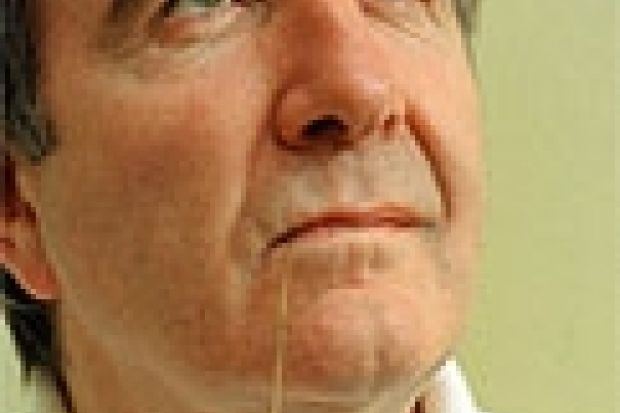Big Brother was initially touted as a social experiment, but Channel Four backed off when the notion came under attack. It is not a scientific experiment. There are no controlled conditions. But it does generate interesting and unique material.
Two dedicated loggers type everything that is happening in the house into a database, coupled with key words. My colleagues and I search this and can look at various patterns of behaviour such as gossip, flirting and nomination reasons. Gossip is fascinating to a range of social scientists, but most studies are done at a distance and seldom involve observation. They are often second hand. In Big Brother you have a wonderful enclosed world where every incident of gossiping is recorded and can be analysed in detail.
Last year we analysed flirting patterns in Big Brother and came up against the queen bee phenomenon. There was only room for one female flirt among last year's group. But when a new woman entered the house, she took over the queen bee role and the previous one, Mel, moved to the bottom of the pile. This suggests that women do not like to compete with each other sexually in public. Interestingly, the three male drones who attended Mel just transferred their attention to the new queen bee. I have never seen anything about this in psychology literature and without Big Brother we would never have uncovered it.
This time around I would like to study the bitching/gossip process more, particularly how an episode of gossip is broached and how people get clearance to gossip.
For viewers, the main attraction of the programme is that it offers unprecedented closeness to the lives of other people. Also, what is fascinating about people in the house is that they are not two-dimensional like soap opera characters. They can surprise us and often themselves. They are a constantly changing kaleidoscope of images and this turns us into part-time detectives. We are fascinated by other people and their motivations.
At its base, Big Brother is a psychological show. It is no coincidence that the producers selected psychologists to take part. The viewers are amateur psychologists and the programme's psychologists act as catalysts in a sense, drawing viewers' attention to things they might not have noticed.
There is also the superb balance between the Yin of competition - the nomination process - and the Yang of cooperation - having to live and work together as a team. This creates a fascinating dynamic. The nomination process creates a lot of anguish - you can see that in what the housemates say, but also in tiny details that show how they are trying to disguise their true motives. It is the minutiae of behaviour that most interest me. There are moments the housemates are aware of the cameras and moments of forgetfulness and cutting through that is their unconscious behaviour over which they have no control. The viewer is in the privileged position of seeing this and seeing things that the other housemates do not see.
People complain that the housemates are a bunch of exhibitionists, but the series needs people who are not shy. Big Brother is also accused of being boring, but those who say this either have not given it a chance or are not interested in people. Another accusation is that it turns viewers into voyeurs, but voyeurs delight in knowing that they are watching people who do not know they are being observed. The Big Brother housemates know they are being observed and often adapt their behaviour accordingly. Germaine Greer says the programme turns viewers into worse than voyeurs. That is more revealing about her and suggests she is an anti-populist snob who is not really interested in people.
Peter Collett is senior research fellow, Department of Experimental Psychology University of Oxford. He is one of the resident psychologists on Channel Four's Big Brother.
Register to continue
Why register?
- Registration is free and only takes a moment
- Once registered, you can read 3 articles a month
- Sign up for our newsletter
Subscribe
Or subscribe for unlimited access to:
- Unlimited access to news, views, insights & reviews
- Digital editions
- Digital access to THE’s university and college rankings analysis
Already registered or a current subscriber? Login
